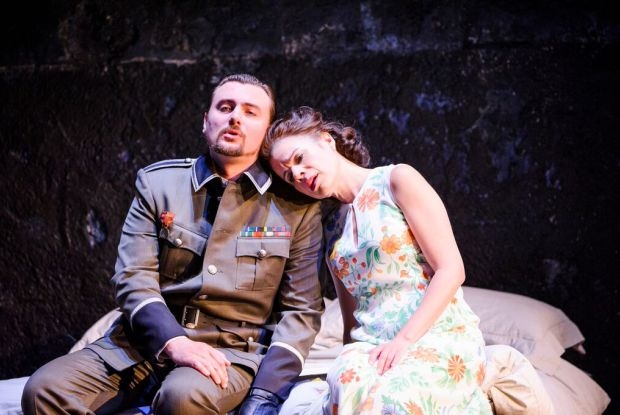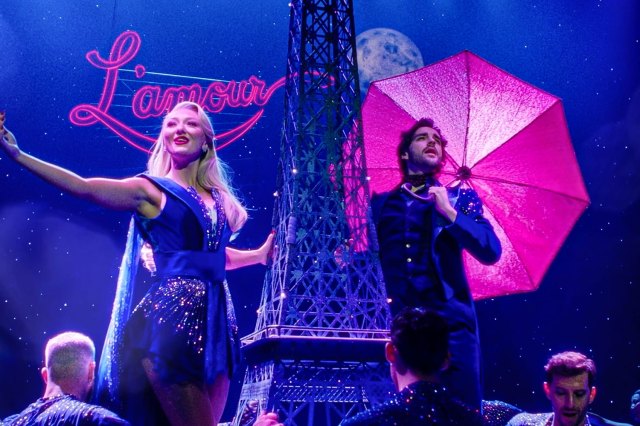Poliuto (Glyndebourne)
Donizetti’s forgotten opera is a memorable first for the Glyndebourne Festival

© Tristram Kenton
The ‘m’ word gets bandied about a mite too freely these days, but it surely applies to Poliuto and to its expanded French incarnation as Les Martyrs. It may indeed be Donizetti’s absolute masterpiece; it’s certainly the one that lodges in the brain once you’ve heard it.
Mark Elder and Opera Rara revealed Les Martyrs in all its glory at the Royal Festival Hall last autumn, brilliantly sung, and that is now available on disc in a studio version. It’s paved the way nicely for Glyndebourne‘s season-opening staging of the Italian original – the UK’s first-ever professional production – a musical triumph that matches it on every level.
Roman Governor’s daughter Paolina loved Severo, but he’s presumed dead in battle and she is now wed to a nobleman, Poliuto. Two problems: a) Poliuto has converted to Christianity on the sly, and b) Severo is alive, well, and home to claim her hand. Tricky.
Poliuto needs at least three world-class singers, and Glyndebourne has them in the shape of soprano Ana Maria Martínez, whose expressive, haunted account of a role that Maria Callas once sang explores every shredded nerve-end of Paolina’s dilemma, golden tenor Michael Fabiano in the title role, startlingly big of voice (too much so? Not quite, I think), and a real discovery as Severo, the Russian Igor Golovatenko. My, he’s something special. We must hear more of this young baritone's burnished Italianate timbre; he’ll have Verdi at his feet.
lightning-sharp playing
Secondary roles are cast from the A-list, with high tenor Timothy Robinson a troubled, wheelchair-bound presence as Paolina’s father, Felice, and star bass Matthew Rose chilling in his baleful focus as Callisthene, the High Priest of Jupiter.
Enrique Mazzola draws lightning-sharp playing from the London Philharmonic Orchestra and choral contributions from Jeremy Bines‘s peerless Glyndebourne Chorus that veer from tragic to martial at the drop of a hat or the donning of a headscarf.
Which brings us to Mariame Clément‘s staging, what there is of it. It’s one of those missed-opportunity productions (the Royal Opera’s recent Nabucco was another) that professes to say something relevant to our times but ends up just getting in the way. The French director’s programme interview confirms that she’s thinking of the late-20th-century Balkan crisis; having decided that, though, she is content to plough through the scenario with few if any insights.
Julia Hansen‘s oppressive designs comprise six outsize grey monoliths that float restlessly around the stage in various Rubik-lite configurations. It all looks as grim as the drab, dowdy costumes – which of course is the idea, but as a context for Donizetti’s fiery score they make for a dispiriting visual experience that’s leavened only occasionally by fettFilm‘s refreshingly restrained video imagery.
For all its directorial disappointments, though, this Poliuto gets a thumbs-up because it delivers so powerfully on the musical front. Listen out for the sextet and chorus late in act 2: it’s up there with the great moments in opera.














